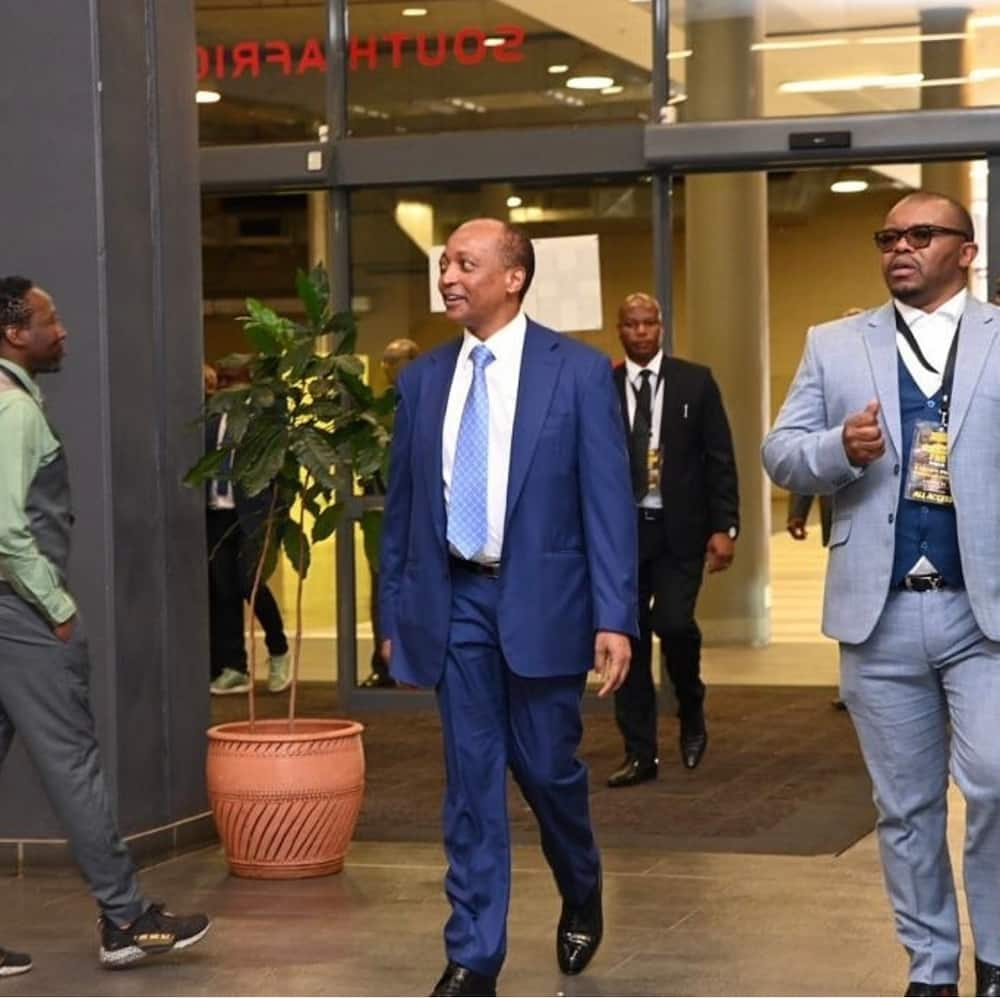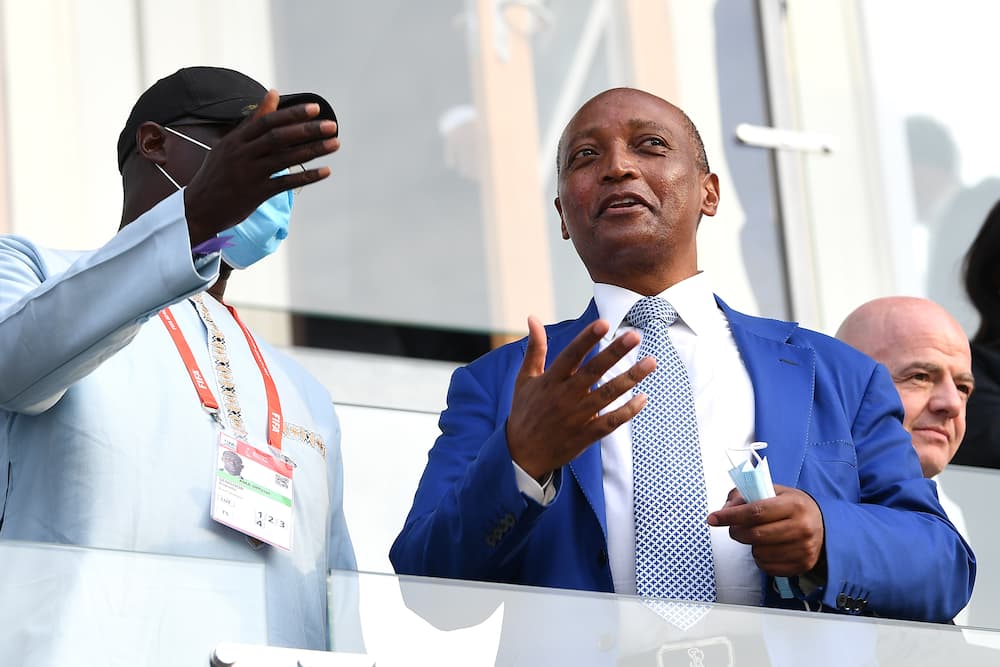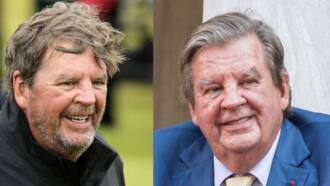3 Black Business Icons Who Started Their Empires During the Apartheid Era and Their Nett Worths Now
Today, South Africa doesn’t have a shortage of successful black entrepreneurs. It wasn’t always the case though.
PAY ATTENTION: Click “See First” under the “Following” tab to see Briefly News on your News Feed!
In the past 27 years, black South Africans have risen up to take their place in the country’s economy. But, only a handful managed to start their empires while still oppressed under the previous regime’s rule.
Briefly News takes a look at three black business icons who succeeded even before 1994.
1. Patrice Motsepe
Patrice Motsepe is arguably Mzansi’s favourite billionaire and he definitely has a spot on this list. Although he didn’t become super rich before the end apartheid, Motsepe was successful as a lawyer.
In the same year Nelson Mandela was elected the first democratic president of South Africa, Motsepe became the first black partner in the law firm Bowman Gilfillan.
Three years later, Motsepe once again made history when he became the first black man in Mzansi to own a mine.
PAY ATTENTION: Never miss breaking news – join Briefly News' Telegram channel!

Source: Instagram
In 1997, gold prices hit rock bottom and it enabled Motsepe to buy six gold mine shafts from AngloGold for $7.7 million. As part of the deal, he was able to pay off the mines with money his company, now called African Rainbow Minerals, earned.
The company is into ferrous metals, gold, platinum, and base metals. Under his leadership, the firm ranked in the 12th position as the largest gold mining corporate in 2012. Within the same year, Motsepe was named South Africa’s wealthiest man with a fortune consisting of $2.4 billion.
Motsepe soon dipped his toes in the sport sector. He bought the Mamelodi Sundowns soccer team and shares in the Bulls rugby team.
As of 2021, according to Statista, Motsepe is the 3rd richest man in the country with a nett worth of $2.9 billion, which is about R41.4 billion.

Source: Getty Images
Herman Mashaba
This list would not be complete without former Johannesburg mayor Herman Mashaba.
Herman Mashaba grew up in near-poverty in GaRamotse in Hammanskraal, Gauteng. According to Wikipedia, Mashaba was raised by his sisters while his mother worked as a domestic worker to support her family.
Mashaba started selling African hair-care products at a company called SuperKurl, and he soon became their best-selling employee. However, he was not satisfied by only being an employee and he decided to start his own business.
In 1985, Mashaba borrowed R30 000 from businessman Walter Dube, who was his friend. He used the money to start Black Like Me. According to News24, before starting his own company, Mashaba sold products out of the boot of his car.
Mashaba has since ventured into politics and even founded his own party, ActionSA.
Richard Maponya
Dr Richard Maponya is synonymous with black excellence. One cannot talk about pre-democratic business success without mentioning Dr Maponya.
Briefly News previously reported Maponya was business-orientated from an early age.
When he was only 24, he worked as a stock-taker for clothes makers. Due to his work, he got himself and his manager, a white, promoted. As a result and a way to show his appreciation, the manager sold him some secondhand clothes which he went and resold.
He got capital which he opened his own clothes retailer but failed to get licensing from the then South African government. Later on in 1950s, he and his wife began the Dube hygienic dairy which was an outfit that delivered milk to clients that did not have electricity using young boys with bicycles. With less stringent regulations, the business expanded in the 70s to yield other stores including grocery stores, a food restaurant and a butchery.
He had a BMW franchise although this was one of the frustrating business ventures he got into since he did not have access to enough cars to sell. He decided to come together with other black businessmen to form the Kilimanjaro Holdings Limited, and together they were able to bid for the East London bottling plant which was a big success.
The success was facilitated by the fact that CocaCola was no longer doing business in South Africa. As such, he was the chairman of the holdings. This and many other ventures made him be recognized as the icon of Soweto and South Africa as a whole. Chichi Maponya family continues to make the business authentically family.
In 2018, it was reported Maponya‘s company was worth R400 million. He passed away at the age of 99 last year.
How the business environment has changed for black entrepreneurs since 1994
Thee end of the apartheid era, as well as formation of policies like BEE to correct past inequality in SA’s business sector, have led to the empowerment of black businessmen and women. According to an article by News24 in 2016, a report by New World Wealth found that half of the dollar-millionaires at the time were from previously disadvantaged groups.
The report further stated that the government will continue pushing policies like Black Economic Empowerment (BEE), to ensure that 80% of the country’s dollar-millionaires be from previously disadvantage groups by 2030.
Crippled economy and unemployment now the biggest threat to young aspiring entrepreneurs
Until 1994, inequality and discrimination were some of the problems young South Africans had to deal with. Fast forward 27 years and millions of South Africans are still struggling.
In 2021, SA‘s unemployment rate reached record highs and the economy took a major knock because of the pandemic and other issues, including corruption.Where young South Africans were supposed to have bright futures because of equal rights, they are struggling more than ever.
President Cyril Ramaphosa has revealed that youth unemployment has worsened under the Covid-19 pandemic. In his weekly newsletter ahead of Youth Day on 16 June, the president promised that creating more opportunities for young people and supporting them to access opportunities is government's "foremost priority".
Ramaphosa wrote that the Presidential Youth Employment Intervention, which was launched a few weeks before the country went into lockdown, has now entered full implementation.
The initiative, titled Youth Employment Service (YES), would see the government partnering with businesses, labour and civil society to better the lives of young South Africans.
Source: Briefly News






